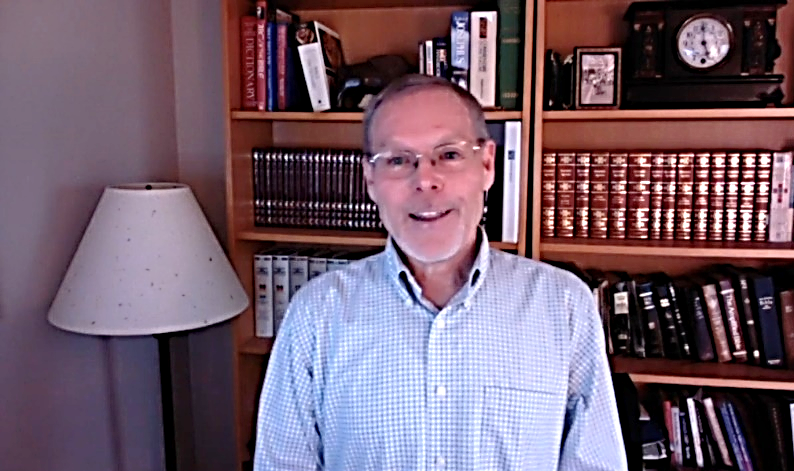
Statistically Speaking…
| Statistically, someone reading this today will have an affair at some point this year. It might be you. It might be me. I believe with all my heart that each of us is vulnerable to having an affair. In fact, the first step toward an affair is failing to admit we are vulnerable. Of the people I have talked to over the years who stepped out of their marriage, none of them set out to have an affair. Actually, the pattern seems to be pretty consistent: They had needs not being met in their marriage by their spouse. Instead of talking to their spouse about it, they talked to someone else who happened to be a member of the opposite sex. That opened the door to spending more time with that person. One thing led to the next, and it all ended in a full-blown affair. So how do you keep from getting on that path? Two things: (1) Always be honest with yourself about your vulnerabilities and share those vulnerabilities with your spouse so the two of you can work together on them. (2) Pray for God to reveal anything in your life that has you on dangerous ground, then ask for His wisdom and guidance as you step back into your marriage fully and completely. Today’s One Thing: Lay your vulnerabilities at the feet of God, and let Him begin to heal you! |

Scripture reading: Hebrews 11
The first step for establishing a partnership with God is to believe that God exists and that he is willing to develop common projects with us. This is faith. As the Bible says, “Anyone who comes to [God] must believe that he exists and that he rewards those who earnestly seek him” (Heb. 11:6 NIV).
In the Old Testament book of Exodus, we read that Moses and the people of Israel stood facing the Red Sea when Pharaoh’s army overtook them. At that moment, some wanted to surrender and return to slavery; others considered killing themselves. But Moses confidently prayed for God’s help. God’s answer, a mixture of reprimand and instruction about how to act, couldn’t have been stronger: “Why do you cry out to me? Tell the Israelites to go forward. But you lift up your staff and stretch out your hand over the sea and divide it, that the Israelites may go into the sea on dry ground” (Exod. 14:15–16 NRSV).
Praying and just standing there, waiting for God’s providence, was the solution the confident Moses envisioned—but it was not the divine solution. God wanted the people to walk. More than that, he wanted them to walk toward the sea. Faith that walks sometimes achieves that which seems impossible. When Moses obeyed, he discovered the fact that the sea couldn’t resist those who marched in its direction. And the Hebrews boldly walked through the middle of the sea.
You don’t need to be a saint to apply the Law of Faith. You just need to listen to God’s instruction and be willing to walk toward the sea, to go deeper toward something you want. Faith is hearing God’s command and moving forward in obedience. It doesn’t matter if your objective is to change the world, to please God, or to improve your quality of life; having faith is essential for taking the first step and for experiencing the spiritual laws described in this book.
One of the cornerstones of neurolinguistics is that we need to believe in order to see. In other words, we need to have faith—to put something into practice—to get answers and results. Maybe this is what Jesus calls faith the size of a mustard seed: “Truly I tell you, if you have faith as small as a mustard seed, you can say to this mountain, ‘Move from here to there,’ and it will move. Nothing will be impossible for you” (Matt. 17:20 NIV). Faith, no matter how small, moves mountains.
Faith is not the belief that God will do what you want. It is the belief that God will do what is right.
—Max Lucado
Credit: Max Lucado, Baker Publishing
Content for the weekly inspirational bulletin is provided by Lyle Dietrich.
Our Daily Bread

It’s Not About The Fish
When God saw what they did and how they turned from their evil ways, he relented………Jonah 3:10
Sighted numerous times off the coast of Australia’s South Queensland, Migaloo is the first albino humpback whale ever documented. The splendid creature, estimated at more than forty feet long, is so rare that Australia passed a law specifically to protect him.
The Bible tells us about a “huge fish” so rare that God had provided it especially to swallow a runaway prophet (Jonah 1:17). Most know the story. God told Jonah to take a message of judgment to Nineveh. But Jonah wanted nothing to do with the Ninevites, who had a reputation for cruelty to just about everyone—including the Hebrews. So he fled. Things went badly. From inside the fish, Jonah repented. Eventually he preached to the Ninevites, and they repented too (3:5-10).
Great story, right? Except it doesn’t end there. While Nineveh repented, Jonah pouted. “Isn’t this what I said, Lord?” he prayed. “I knew that you are a gracious and compassionate God, slow to anger and abounding in love” (4:2). Having been rescued from certain death, Jonah’s sinful anger grew until even his prayer became suicidal (v. 3).
The story of Jonah isn’t about the fish. It’s about our human nature and the nature of the God who pursues us. “The Lord is patient with you,” wrote the apostle Peter, “not wanting anyone to perish, but everyone to come to repentance” (2 Peter 3:9). God offers His love to brutal Ninevites, pouting prophets, and you and me. By Tim Gustafson
REFLECT & PRAY:
Our love has limits; God’s love is limitless.
Credit: Our Daily Bread



The WLCC service is set up to accommodate everyone during the pandemic:
• Sunday Service: Starts @ 10:00 AM at Old 690 Brewery at 15670 Ashbury Church Rd, Purcellville, VA
•We have a drive-in service where you can stay in your car, watch the service, and listen to Pastor Ray by tuning your car radio to 1610 AM
•We have limited indoor seating during inclement weather.
•We also have numerous tables, spaced appropriately, for anyone wishing to attend the outdoor service in a more personable atmosphere.
• In the event of rain we will move under the covered roof portion of the building.
• WLCC continues to stream Sunday Service at 10:00 AM on Facebook and YouTube.
Wednesday Evening Study Group occurs every Wednesday at 7:30 pm. Join us for a lively discussion. Check your email for the online link to the meeting.
Western Loudoun Community Church is about being the church — not just some religious exercise. We are about fulfilling the Great Commission and living the Great Commandment.
Come see what all the laughter and joy is about – We’ll save you a seat.
